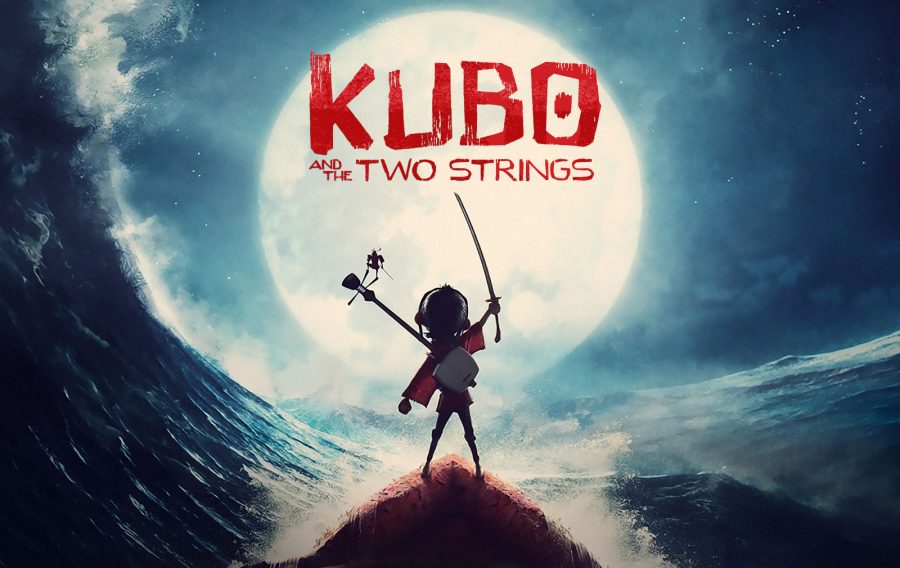Jacob at the Silver Screen: Kubo and the Two Strings
September 16, 2016
Kubo and the Two Strings is by far a must see for anyone who even remotely appreciates stop-motion animation. This film has some of the most impressive, absorbing and downright impressive animation I’ve seen yet. Being one Travis Knight’s directorial debut, Kubo and the Two Strings was a great start to his career, previously working as an animator for Coraline in 2009 and ParaNorman in 2012.
Kubo and the Two Strings takes place in ancient Japan and follows a young boy, Kubo, who has to find 3 pieces of a sacred golden armor after his mother sacrifices herself to save him from her father and two sisters. Without spoiling anything, Kubo and the Two Strings’ story is indeed quite different from other animated flicks that came out this summer. One word one could use while describing it would most certainly be melancholy, as the story holds themes that provoke much more thought than something like Zootopia or Frozen. Although, the movie didn’t exactly take advantage of some of story’s potential, it is still a wild ride that no one should regret taking.
Another aspect that Kubo and the Two Strings that should be praised is its faithful depiction of Japanese culture. Some were quick to point out that Kubo’s cast was mostly Caucasians playing asian characters, there being a minority of asian voice actors in the film, and accuse the movie of whitewashing. Although, if inspected further, the movie actually references a fairly obscure buddhist festival known as Obon, of which takes place in August. In a brief nutshell, Obon is a festival celebrating and honoring deceased family members. Obon is only the tip of the iceberg when it comes to the amount of thought put into Kubo’s representation of Japanese culture.
The only thing weak about the film is the action. It’s a bit lacking compared to other animated features, but it does not subtract from the story at all. Going back to the movie’s potential, it could have done a lot more than it already did. The action already in the film is kinda flat, nothing really catches the eye save for the final battle. Even then, as final battles go, there’s only one shot that really pops out.
All in all, Kubo and the Two Strings is a great movie that is honestly kind of underappreciated when it’s compared to other summer hits like Finding Dory. Kubo’s way of storytelling allows both young and old audiences to truly appreciate the beautifully woeful themes and its alluring animation. Kubo and the Two Strings definitely earns the $20 spent going to the theater.








